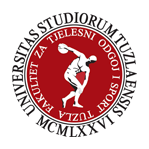EFFECT OF THE PHYSICAL ACTIVITIES ON ORPHANS’ ANXIETY AND SELF ESTEEM
Keywords:
orphan, anxiety, self-esteem, physical activityAbstract
The aim of this study was to investigate whether 8 weeks practiced physical activities affect Orphans’ self-esteem and anxiety. 25 orphans whose age average was 11,04±084 years voluntarily participated to the research. Turkish forms of general anxiety scale and Piers-Harris children's self-concept scale was applied to the children before and after 8 weeks practiced physical activities. Data was tested in SSPS 13,0 program and level of significance were determined as 0,05. Descriptive statistics techniques, Mann-Whitney U, Wilcoxon and Spearman correlation test were used in the analysis of the data.The results revealed that there was a significant difference (P<0.05) between pre-test and post-test of anxiety and self-esteem points. There was a significant difference (P<0.05) between pre-test and post-test of anxiety and self-esteem points. Spearman's correlation test showed that there is significant correlation between pre-test anxiety and post-test anxiety (r = 0,974; p<0.05), pre-test anxiety and pre-test self-esteem (r = -0,705; p<0,05), pre-test anxiety and post test self-esteem (r = -0,674; p<0,05), post-test anxiety and pre-test self-esteem (r = -0,717; p<0,05), post-test anxiety and post-test self-esteem (r = -0,697; p<0,05), pre-test self-esteem and post-test self-esteem (r = -0.969p<0.05). It can be concluded that physical activities is beneficial for children who live in orphanage. People living without theirparents suffer from lack of love and care. Absence of satisfying such needs results in psychological depression and problems. Hence,participating in physical activities will help children living in an orphanage to be strong, happy healthy and successful in their future.
Downloads
Downloads
Published
How to Cite
Issue
Section
License

This work is licensed under a Creative Commons Attribution-NonCommercial-NoDerivatives 4.0 International License.






